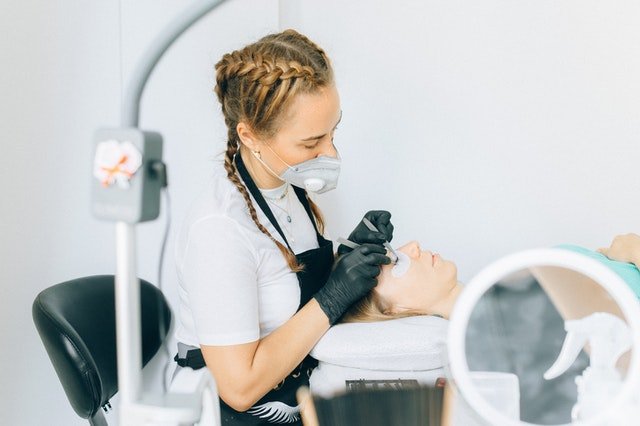Cosmetic surgery has become increasingly popular, with millions of people opting for procedures to enhance their appearance. Whether it’s a minor tweak or a significant transformation, the decision to undergo cosmetic surgery should not be taken lightly. This article will walk you through five crucial aspects to consider before taking the plunge into cosmetic surgery, ensuring you make an informed decision.
1. Understand the Procedure You’re Considering
Before deciding on cosmetic surgery, it’s vital to thoroughly understand the procedure you’re interested in. Research the process, the expected outcomes, the risks involved, and the recovery time.
- Research: Look into the procedure’s details, including how it’s performed and what results you can realistically expect.
- Risks and Complications: Every surgery has risks. Make sure you are aware of potential complications and side effects.
- Recovery Time: Some surgeries require significant downtime. Consider how this will impact your personal and professional life.
Understanding these factors will help you gauge whether the surgery aligns with your expectations and lifestyle.
2. Choose a Qualified and Experienced Surgeon
Selecting the right surgeon is one of the most important decisions you’ll make in your cosmetic surgery journey.
- Credentials: Ensure the surgeon is board-certified and has extensive experience in the specific procedure you’re considering.
- Reviews and Testimonials: Look at patient reviews and before-and-after photos to assess the surgeon’s work.
- Consultation: A consultation with the surgeon should be thorough. Discuss your goals, ask questions, and ensure you feel comfortable and confident in their expertise.
Your surgeon’s skill and experience can significantly influence the success of your procedure, so choose wisely.
3. Consider the Costs Involved
Cosmetic surgery can be expensive, and costs can vary widely depending on the procedure and the surgeon’s expertise.
- Procedure Costs: Get a detailed breakdown of the procedure costs, including surgeon fees, anesthesia, facility charges, and post-operative care.
- Financing Options: If the cost is high, explore financing options. Many clinics offer payment plans to make surgery more accessible.
- Additional Costs: Factor in additional costs such as medications, follow-up appointments, and time off work during recovery.
Understanding the financial commitment is crucial to avoid any surprises and ensure you’re financially prepared.
4. Realistic Expectations and Psychological Preparedness
Cosmetic surgery can enhance your appearance, but it’s essential to have realistic expectations about the outcomes.
- Expectation Management: Understand that surgery can improve your appearance, but it may not result in perfection.
- Psychological Impact: Consider the emotional and psychological impact of the surgery. Will it improve your self-esteem or are you expecting it to solve deeper issues?
- Counseling: Sometimes, speaking with a counselor before surgery can help you clarify your motivations and expectations.
Being mentally and emotionally prepared is as important as being physically ready for surgery.
5. Understand the Risks and Complications
Every surgical procedure carries risks, and cosmetic surgery is no different.
- Infection: One of the most common risks is infection, which can occur if proper care isn’t taken during recovery.
- Scarring: Depending on the procedure, scarring is possible. Discuss with your surgeon how to minimize scarring and whether it will be visible.
- Anesthesia Risks: General anesthesia has its own set of risks, including allergic reactions and complications.
Being aware of the potential risks and having a plan in place to address them can help ensure a smoother recovery.
6. The Importance of Post-Operative Care
The recovery period after cosmetic surgery is crucial to the success of your procedure.
- Follow-Up Appointments: Regular follow-up visits with your surgeon are essential to monitor your healing process.
- Care Instructions: Adhere strictly to post-operative care instructions provided by your surgeon, such as wound care, activity restrictions, and medications.
- Support System: Ensure you have a support system in place to assist you during your recovery, especially in the first few days after surgery.
Proper post-operative care can prevent complications and ensure the best possible outcome from your surgery.
7. Alternative Options and Non-Surgical Procedures
Sometimes, non-surgical alternatives can provide similar results with fewer risks.
- Injectables and Fillers: Procedures like Botox or dermal fillers can offer temporary enhancements without the need for surgery.
- Laser Treatments: Laser procedures can address skin issues such as wrinkles, scars, and pigmentation without invasive surgery.
- Lifestyle Changes: Sometimes, diet, exercise, and skincare routines can achieve the desired results without the need for surgery.
Exploring non-surgical options may be a viable alternative for those hesitant about going under the knife.
8. Legal and Ethical Considerations
It’s essential to be aware of the legal and ethical aspects of cosmetic surgery.
- Informed Consent: Ensure that your surgeon provides you with all the information needed to give informed consent.
- Medical Records: Your medical history should be thoroughly reviewed to avoid complications during surgery.
- Regulations: Make sure the clinic is properly accredited and follows all legal regulations.
Understanding these legal and ethical considerations will help protect your rights and ensure a safe surgical experience.
Conclusion
Cosmetic surgery is a significant decision that requires careful consideration of various factors. By understanding the procedure, choosing the right surgeon, considering the costs, setting realistic expectations, and being aware of the risks, you can make an informed decision that leads to a satisfying outcome. Remember, the goal is to enhance your appearance safely and effectively, so take your time, do your research, and consult with professionals to ensure the best results.
Read also: Reduce Costs in Your Company: Tips For You
FAQ
Q: How long is the recovery period for most cosmetic surgeries?
A: The recovery period varies depending on the procedure. Minor surgeries might require a few days, while more invasive procedures could take weeks or even months for a full recovery.
Q: Are the results of cosmetic surgery permanent?
A: While many procedures offer long-lasting results, they are not always permanent. Factors such as aging, lifestyle, and changes in weight can affect the longevity of the results.
Q: Is cosmetic surgery covered by insurance?
A: Typically, cosmetic surgery is not covered by insurance as it is considered elective. However, some procedures that are deemed medically necessary might be partially covered.
Q: What are the most common risks associated with cosmetic surgery?
A: Common risks include infection, scarring, anesthesia complications, and dissatisfaction with the results.
Q: Can I combine multiple procedures in one surgery?
A: Yes, many patients opt to combine procedures to achieve their desired results in one surgical session. However, this should be discussed with your surgeon to ensure safety.
Q: How do I know if I’m a good candidate for cosmetic surgery?
A: A good candidate is typically in good health, has realistic expectations, and is psychologically prepared for the surgery. A consultation with a qualified surgeon will help determine your candidacy.

